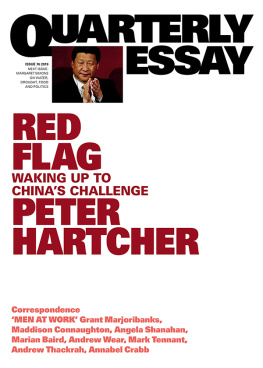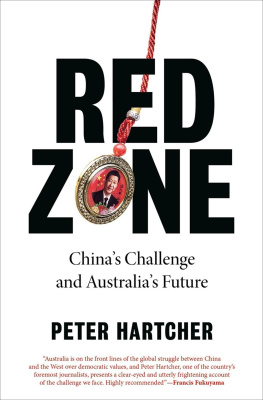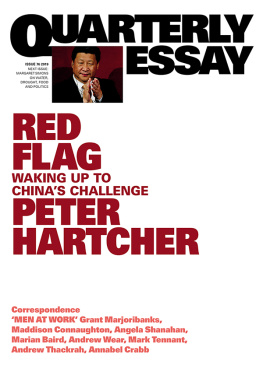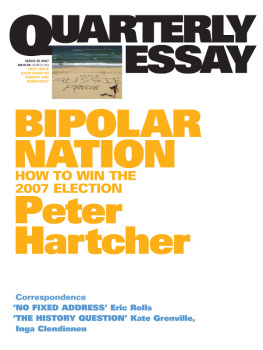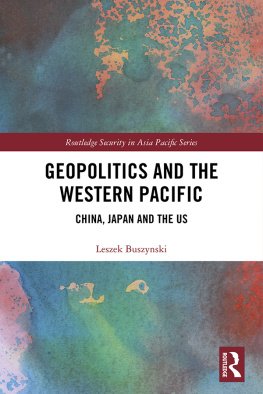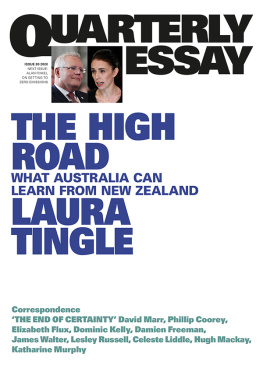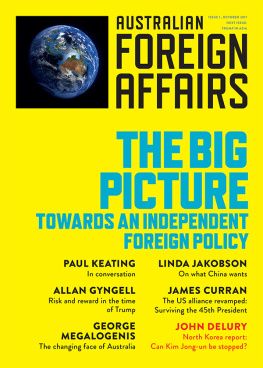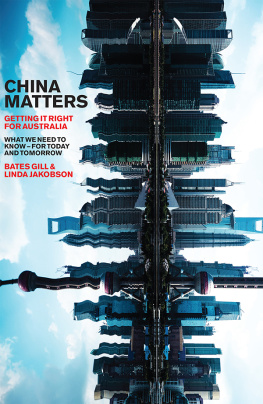Quarterly Essay is published four times a year by Black Inc., an imprint of Schwartz Books Pty Ltd.
Publisher: Morry Schwartz.
ALL RIGHTS RESERVED.
No part of this publication may be reproduced, stored in a retrieval system, or transmitted in any form by any means electronic, mechanical, photocopying, recording or otherwise without the prior consent of the publishers.
Essay & correspondence retained by the authors.
Subscriptions 1 year print & digital (4 issues): $79.95 within Australia incl. GST. Outside Australia $119.95. 2 years print & digital (8 issues): $149.95 within Australia incl. GST. 1 year digital only: $49.95.
Payment may be made by Mastercard or Visa, or by cheque made out to Schwartz Books. Payment includes postage and handling.
To subscribe, fill out and post the subscription form inside this issue, or subscribe online:
Editor: Chris Feik. Management: Elisabeth Young. Publicity: Anna Lensky. Design: Guy Mirabella. Assistant Editor: Kirstie Innes-Will. Production Coordinator: Marilyn de Castro. Typesetting: Akiko Chan.
RED FLAG | Waking up to Chinas challenge |
Peter Hartcher |
We hear a great deal about the power and might of the risen China and the man sometimes called its ruler for life, President Xi Jinping. But what does the supreme ruler of China want to do with all this power? Only knowing that can we comprehend where Australia fits into his plan.
We know some of Xis grand aims for his nation. And we know his big taboos, too. He has declared the pursuit of the China Dream to be the overarching ambition of his time. The dream, he says, is the rejuvenation of the great Chinese nation. Xi is clear about what his dream includes. Such as being a moderately well-off society by 2021. He doesnt specify, but if you apply the informal rule of thumb that defines a middle-income country as having US$10,000 in income per head annually, China is on track to surpass this a year or two early, putting it in the same income league as Malaysia and Russia by the end of 2019. And Xi dreams of a fully rich China by 2049, the centenary of Mao Zedongs founding of the Peoples Republic. The country will be closer to centre-stage of world affairs, in Xis vision. This refers to Chinas ancient name for itself the two characters that are sometimes translated as Middle Kingdom can also be rendered Central Kingdom.
A fond fantasy? Not at all. Chinas economy was the biggest in the world for at least half a millennium, until as recently as 1820. It is not inevitable that it will vault over the United States to recover that title, but it is likely, and likely by about the time todays newborns are ready to start high school. Its a distinction without much of a difference. China will have about the same economic heft as the US, maybe a bit more, maybe a bit less. But whichever it is, it is already well advanced towards superpower status, its economy as big as those of the entire European Union and Japan put together. Economic bulk is the base feedstock of national power. Even at todays subdued growth rate, Chinas economy is adding so much new activity that its growing another Australia every two years.
Imperial China, a world leader in technology, also pioneered the capable, modern nation-state. It took Europe almost two millennia to catch up. China is again thrusting to the forefront of technological know-how and pioneering a more effective nation-state. For instance, in less than half the time Australia has spent debating inconclusively whether to build a single fast rail line to connect its major cities, China built a network of over 20,000 kilometres of fast rail.
Its return to imperial-era greatness has many modern touches. To keep the kids connected to the spirit of nation-building, Chinas gaming behemoth, Tencent, launched a new game. Patriotically titled Homeland Dream, it went live just in time for celebrations of the seventieth anniversary of the founding of the Peoples Republic this year. As described by The Financial Times, the game allows players to build virtual cities filled with Communist slogans and landmarks. It went instantly to the top of the list of most popular games. For Chinas biggest video game company, a patriotic business strategy appears to be paying off. Unpatriotic ones are less likely to succeed. Every new game needs the approval of the state. And for lovers of liberty who fret over Chinas tech-enhanced surveillance and control the US-based independent watchdog organisation Freedom House has dubbed the game techno-dystopian expansionism China has become hyper-capable in a troubling way.
The spirit of the once-mighty empire that built the Great Wall and the Great Canal is taking concrete form once more with Beijings imperial-scale ambition for its vast intercontinental Belt and Road scheme for connecting the world through Chinese money and power. The Central Kingdom has every prospect of being much closer to centre-stage, just as Xi wishes.
And by the same date of 2049, he sees Beijing recovering the self-governing democratic island of Taiwan for the Chinese Communist Party (CCP), a prospect that troubles most of Taiwans 24 million people. Its no coincidence that Hong Kongs special autonomy under the One Country, Two Systems formula is due to expire in the same year.
Thats what Xi wants. A country as rich as the richest on earth, with all its territories united under the centralised rule of the CCP, in a magnificent restoration of Chinas sovereign splendour before it was torn apart by British, European and Japanese forces after 1842. That was the beginning of what China calls its century of humiliation. Xis dream is to end the ignominy in glory.
Xi intends to be nothing less than a threshold figure in world history. The Soviet Communist Party collapsed because in the end nobody was a real man, Xi said in his first months in power. Implicitly, he was asserting that only a real man could hold China together. He was that man. The iron fist had announced itself. There would be no ideological wavering or political timidity. He changed Chinas constitution, removing term limits for the leader, so he could rule indefinitely.
Xi has the benign appearance of a kindly uncle. One of his nicknames is Winnie the Pooh. But he is the most repressive Chinese leader since Mao. Inside Chinas Great Firewall, official censors scrub the web of any such ursine reference. Not only is anything so disrespectful unacceptable, it might be used as a coded reference to circumvent the strict ban on criticism of the president. Disneys harmless 2018 movie Christopher Robin, plainly a subversive Western attempt to undercut the power of the CCP, was banned. In truth, Xi is more grizzly bear than Pooh.
The leader went further. Not content to assert unassailable power at home, he overturned the famous maxim that had guided Chinas overarching strategy for almost a quarter-century. Paramount leader Deng Xiaoping in 1990 urged restraint on a China that was beginning to pulse with the possibilities of its own rising power. Deng urged his compatriots to hide your brightness, bide your time. Xi declared that China was now striving to achieve. This is a crystallising statement of Chinas transformation. It was a status quo power. Its now an ambitious one. Barack Obama accused China under Xi of using sheer size and muscle to force countries into subordinate positions.
We also know what Xi doesnt want. In a secret directive that became famous as Document No. 9 after it was exposed by a Chinese journalist, Xi laid down what have become known as the seven taboos or seven unmentionables for todays China. It was written in the first six months of Xis rule and issued by the General Office of the Central Committee of the Communist Party of China, which Xi, of course, leads. It demanded intense struggle against seven false trends.

